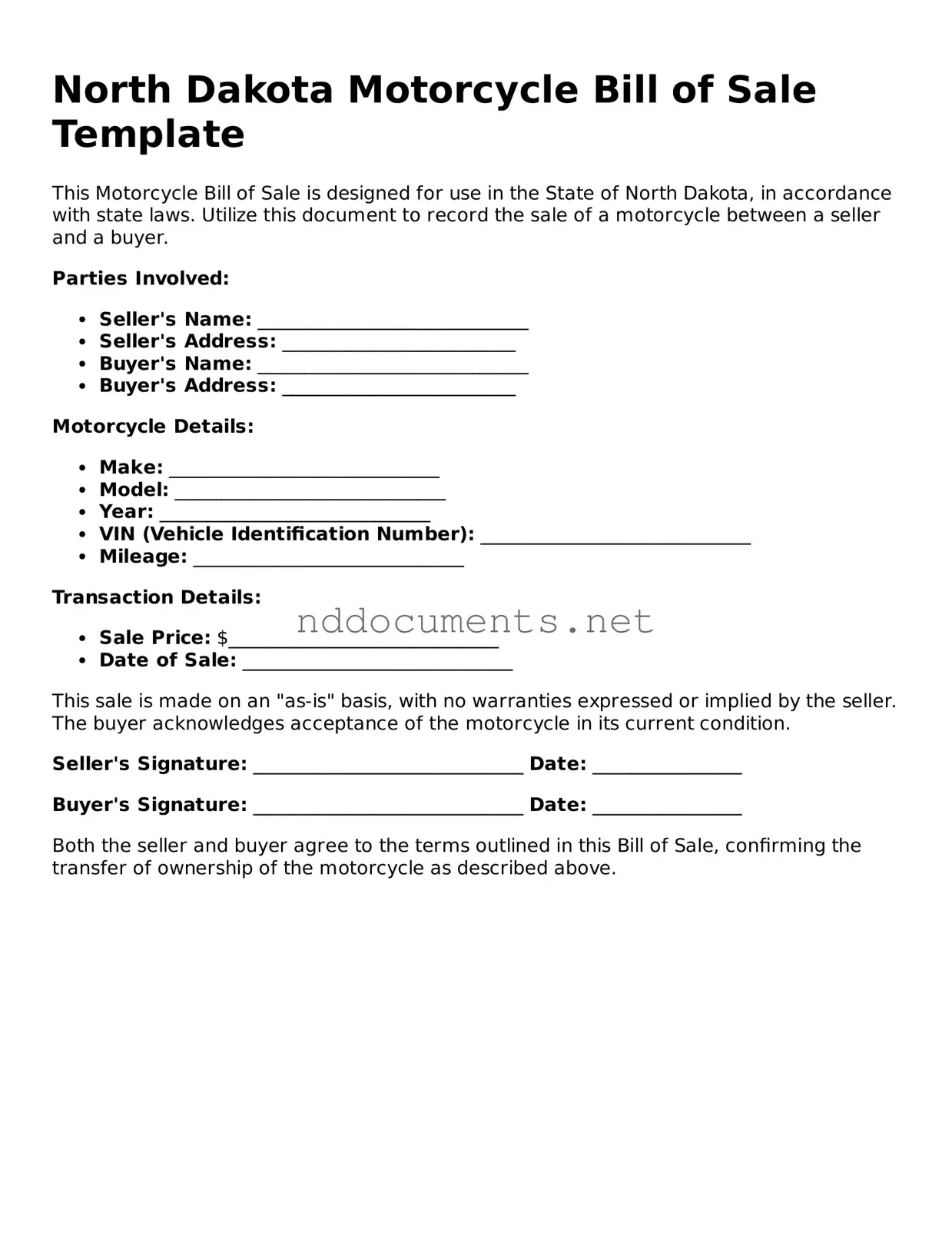Fillable Motorcycle Bill of Sale Document for North Dakota
The North Dakota Motorcycle Bill of Sale is a crucial document that serves as a record of the sale and transfer of ownership for a motorcycle. This form provides essential details about the transaction, including the buyer, seller, and motorcycle specifics. Understanding its importance can help ensure a smooth transfer process and protect both parties involved.
Make Your Document Online

Fillable Motorcycle Bill of Sale Document for North Dakota
Make Your Document Online

Make Your Document Online
or
➤ Motorcycle Bill of Sale
Don’t walk away from an unfinished form
Finish Motorcycle Bill of Sale online quickly from start to download.